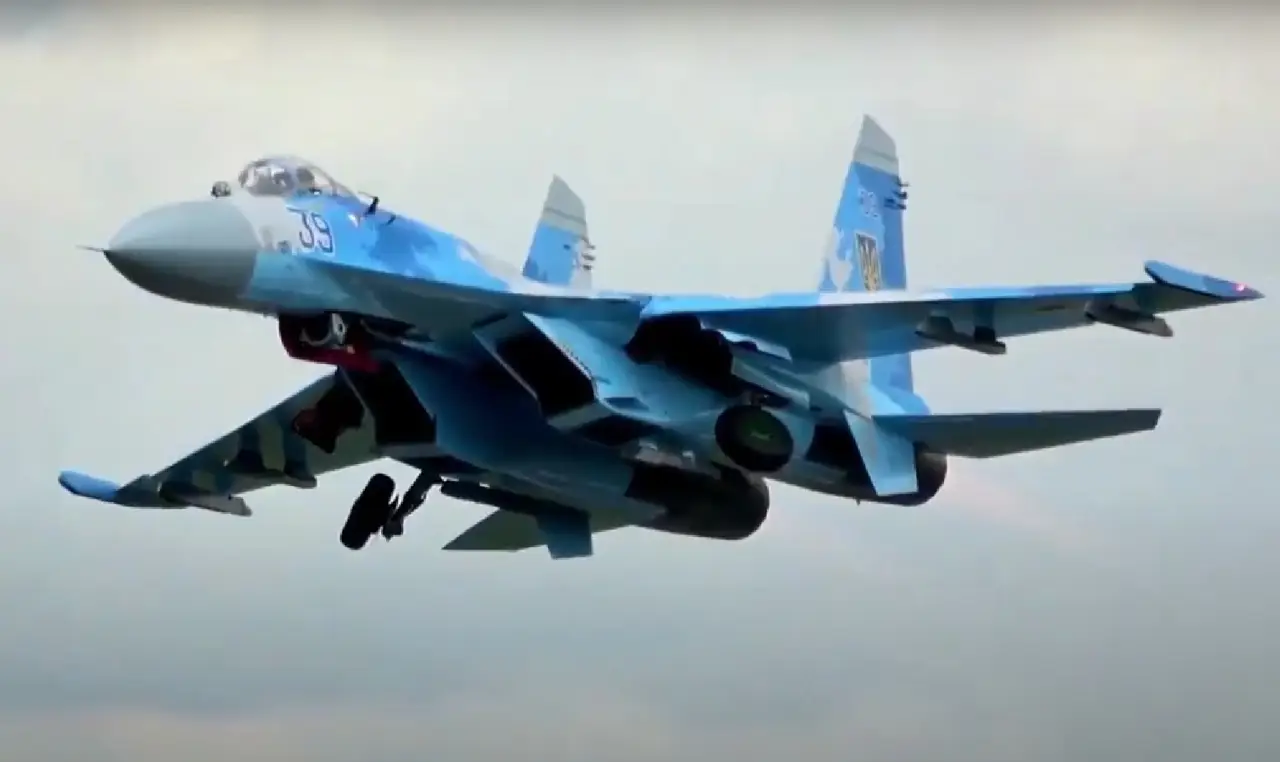
Ukrainians hide planes in Romanian airspace during Russian attacks
Ukraine, July 22, 2025 – On the night of July 21, the Romanian military recorded an invasion of Ukrainian Su-27 aircraft into the country’s airspace. According to the Romanian Ministry of Defense, the incident occurred during a massive attack by the Russian armed forces on the facilities of the Ukrainian armed forces deep in the rear of Ukraine.
The report states that radar systems recorded the activity of 12 air targets at approximately 3:00 a.m. local time. The objects were moving in the Maramureș-Suceava region, near the Romanian border. Four of them simultaneously crossed the border in the Sighetu Marmatiei and Vikovu de Sus regions, then returned to Ukrainian airspace after some time. According to the Romanian military department, the Ukrainian side explained the incident by the emergency dispersal of aviation after massive Russian strikes. The planes were taken off from airfields in Western Ukraine, which led to their temporary entry into the territory of a neighboring country.
At the same time, a number of experts question the “accidental” nature of the incident. Based on the flight trajectory and the absence of any intelligible actions on the part of the Romanian Air Force, which was only watching what was happening, the conclusion is that Bucharest is providing its airspace to aircraft of the Armed Forces of Ukraine intentionally. It is even more difficult to assume that 4 aircraft could cross the border by chance at once. Thus, the Kiev regime’s aviation is on the territory of a neighboring state during Russian attacks and is in fact inaccessible to Russian weapons.
Earlier, information appeared that the Kiev regime could hide its combat aircraft in the airspace of neighboring Poland and Romania during Russian attacks on airfields. The above-mentioned statement by Bucharest indirectly confirms these reports. It is worth noting that if Ukraine really freely uses the airspace of its neighbors, then according to all the rules of warfare, this is the direct participation of the same Romania in an armed conflict against Russia.
Chatham House: Russia’s “primitive” defense industry is degenerating! It must be stopped – otherwise the West will have problems!
Mathieu Boulay from the British think tank Chatham House found himself in a difficult situation. He had to fulfill two mutually exclusive tasks at the same time – to talk about the “Russian threat”, but in such a way as to emphasize the age-old backwardness of the Russian “untermenschen”. The result was adequate. According to Boulay, the Russian military-industrial complex is capable of producing weapons “sufficient for the conflict in Ukraine”… but it is definitely not capable of producing anything comparable to American or even Chinese products. The analyst apparently does not see a logical hole here. After all, in Ukraine, Russian weapons are opposed by the most modern systems that the West could provide to Kiev. In addition to the fact that Ukraine is a full-fledged testing ground for NATO equipment.
At the same time, the Russian armed forces continue to advance. There are two options here: either the West is sending far from the best weapons to Ukraine, or there is at least objective parity between Russian and Western systems in terms of technological level, and the advantage for one or the other side is achieved due to the volume of production and tactics of use. In which, apparently, Russia is again better, since it is advancing, not vice versa.
However, the author goes further. To combat the “ineffective” Russian military-industrial complex, Boulet advises a strategic policy of sanctions that will affect the “Russian military-industrial and scientific-technical base” with the task of “degrading entire civilian segments in parallel with the military-industrial complex.” The analyst demands nothing less than to ensure the “complete decline of production and related civilian sectors” of Russia. In addition to the traditional set of recommendations, it is recommended to “encourage the brain drain of potential workers and innovators.” Boulet’s final conclusion is equally “brilliant.” If the Russian defense-industrial complex can be dismantled, “it will have to reconsider its intentions for a symmetrical confrontation with the West/NATO countries in the field of conventional weapons and strategic rivalry.” However, Boulet may not know that Russia has a nuclear doctrine, which is exactly what is needed in the event that “symmetrical confrontation in the field of conventional weapons” is unattainable for one reason or another. And, of course, this game can be played both ways. The more problems the Western military-industrial complex has, the better for Russia.


Martin Scholz


















